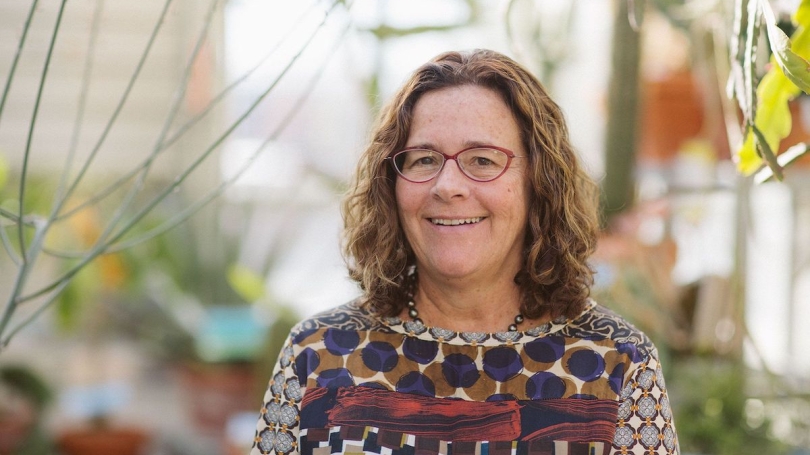
- About
- Academics
- Centers & Programs
- Admissions
- News & Events
- People
Back to Top Nav
Back to Top Nav
Back to Top Nav
Back to Top Nav
The eminent molecular geneticist will serve a three-year term on the academy's leadership council beginning July 1.
The National Academy of Sciences announced this week that Dartmouth molecular geneticist Mary Lou Guerinot has been elected to its 17-member governance council.
A member of the National Academy of Sciences since 2016, Guerinot serves as the Ronald and Deborah Harris Professor in the Sciences and is a member of the Department of Biological Sciences, where she was the first woman to chair a science department. She is widely known for her pioneering research on metal metabolism in plants.
"Election to the council is further recognition of the admiration and esteem in which Professor Guerinot is held by her scientific peers," says Jane Lipson, associate dean for the sciences. "The governing body of the National Academy of Sciences will benefit from the informed perspective she brings as a research scientist, a teacher, and a mentor, just as Dartmouth continues to benefit from her extraordinary abilities in each of these roles."
"I hope to help the National Academy achieve its goal of improving public understanding and appreciation of science and the scientific method," Guerinot says. "I also hope to help with continuing efforts to diversify the National Academy."
Among her many prestigious honors, Guerinot was named a nonresident fellow at the Salk Institute, one of the world's preeminent research institutions. She has published more than 150 papers in scientific journals. She is a recipient of the Stephen Hales Prize and the Dennis R. Hoagland Award from the American Society of Plant Biologists; the Dartmouth Graduate Mentoring Award; and the Dean of Faculty Award for Outstanding Mentoring and Advising, among many other awards.
Guerinot is also a fellow and the past president of ASPB as well as a fellow of the American Association for the Advancement of Science. She served as a member of the Advisory Committee for Biological Sciences at the National Science Foundation and as a member of the board of directors for the Genetics Society of America. She currently serves as a member of the scientific advisory board and the board of directors for the Boyce Thompson Institute.
Guerinot is widely recognized for her work on how plants remove metals from the soil, with the goal of making food more nutritious. She helped identify the protein IRT1, which is responsible for iron uptake from soil. She was also among the first plant biologists to use synchrotron X-ray fluorescence microprobe imaging, a specialized tool used to study the distribution of trace elements in plants.
Additionally, Guerinot helped develop the field of ionomics, an interdisciplinary study that draws from genomics and bioinformatics to better understand the functional connections in organisms between genes, proteins, and minerals. The open-source ionomic database, a unique collection of the elemental profiles of several plant species and yeast, helps researchers identify genes controlling the mineral composition of crops.
Guerinot applied ionomic tools to identify genes that regulate the uptake of harsh toxins in food crops. The project was part of the Dartmouth Toxic Metals Superfund Research Program, in which a team of interdisciplinary scientists investigated the ways arsenic and mercury affect ecosystems and disrupt food supply for humans. Through field trials conducted in Bangladesh, China, Arkansas, and Texas, the team found rice varieties that exhibit lower levels of arsenic.
The National Academy of Sciences was established by Congress in 1863 as a private, nongovernmental institution to advise the nation on issues related to science and technology. Members are elected by their peers for outstanding contributions to research.